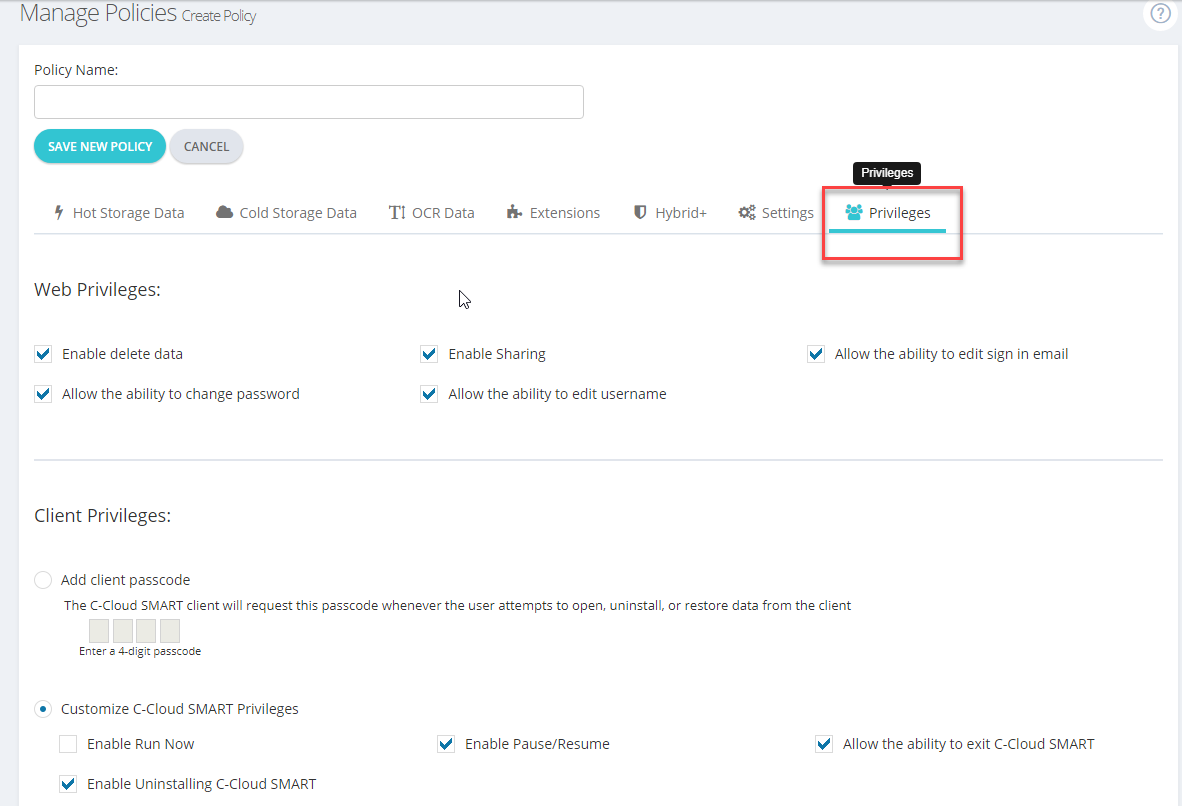1. Instant Storage Data: From this tab, you can select the file(s)/folder(s) you need to back up to your Instant Storage. You can select from the pre-defind categories (Smart Selections), or use the Manual Add as in the following screenshot.
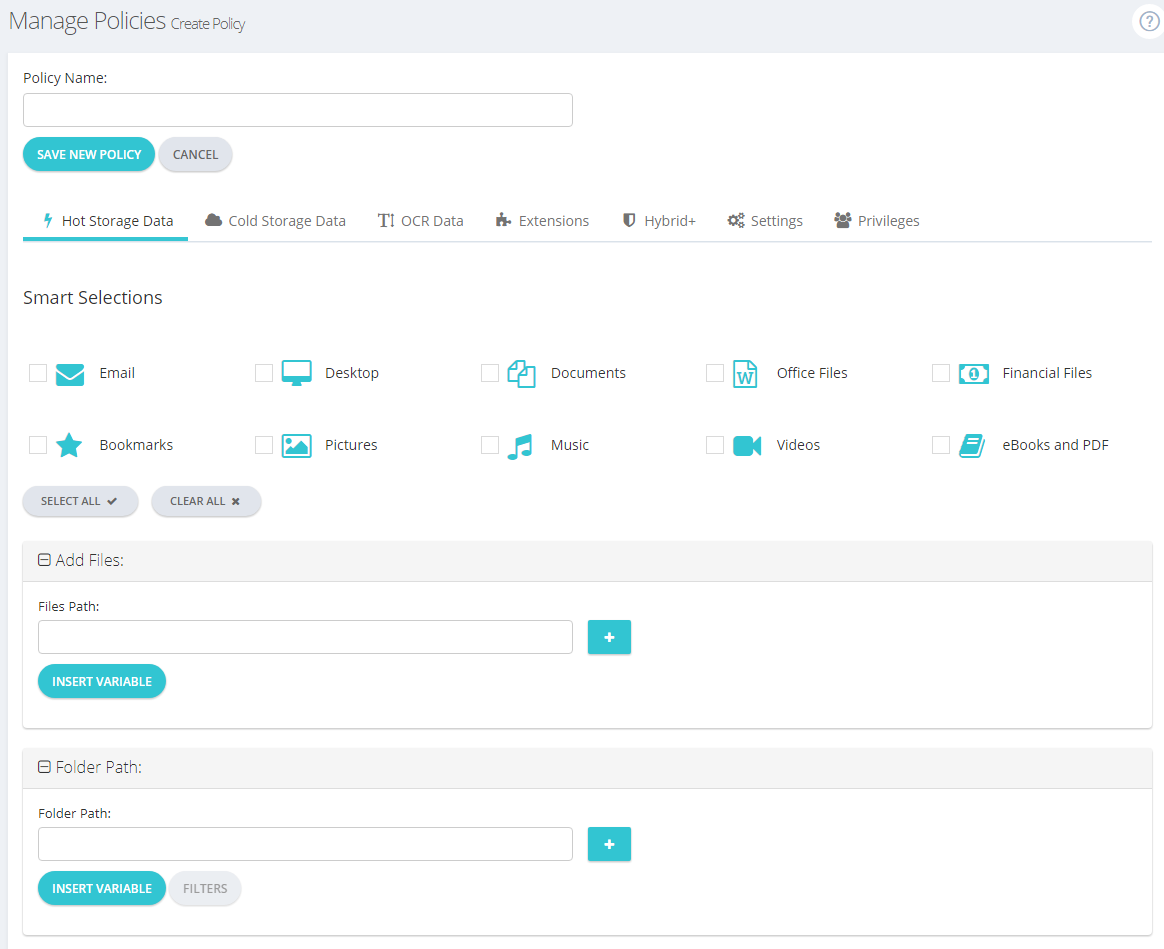
2. Cold Storage Data: From this tab, you can select the file(s)/folder(s) you need to back up to your Cold Storage. You can select from the pre-defind categories (Smart Selections), or use the Manual Add as in the following screenshot.
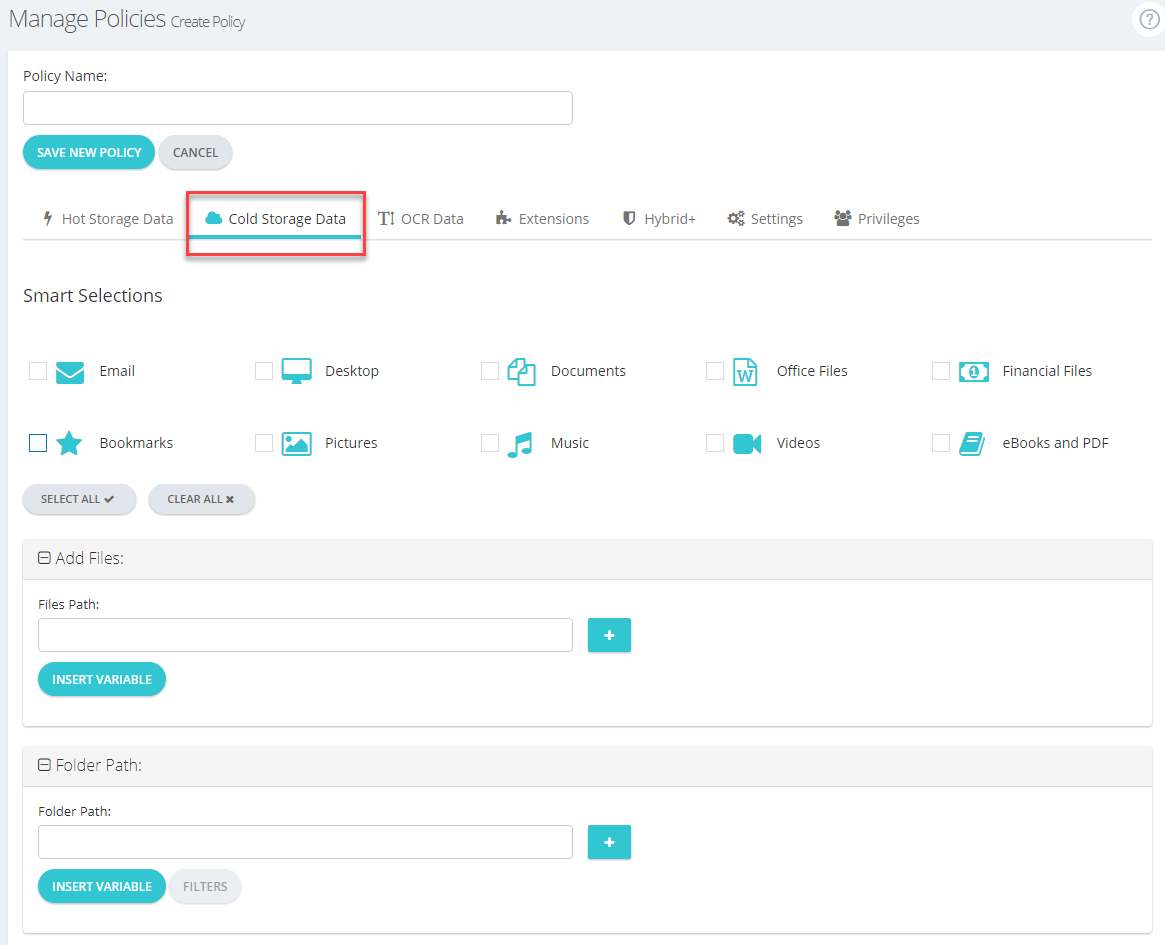
3. Extensions: From this tab, you can:
- Edit (add/remove) the VSS extensions.
- Edit (add/remove) the Block Level extensions.
- Edit (add/remove) the Smart Selection extensions for eBooks, PDF, office files and financial files.
- Use the Global Exclude to add the extensions of the files which you want to exclude from the backup of all the users.
- Use the Exclude by Folders to add the folders which you want to exclude from the backup of all the users.
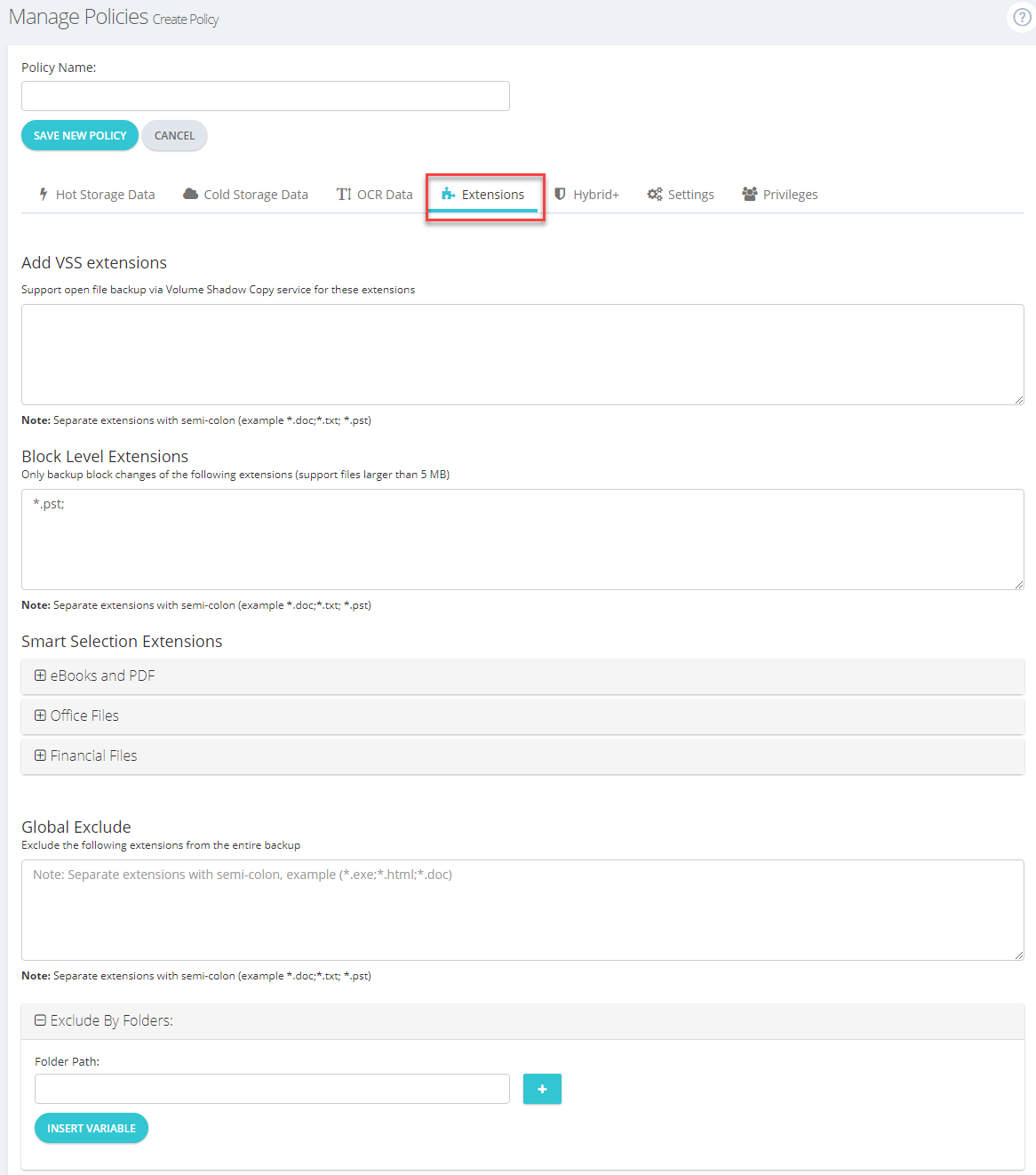
4. Hybrid+: From this tab you can enable/disable the Hybrid+ feature for all of the users.
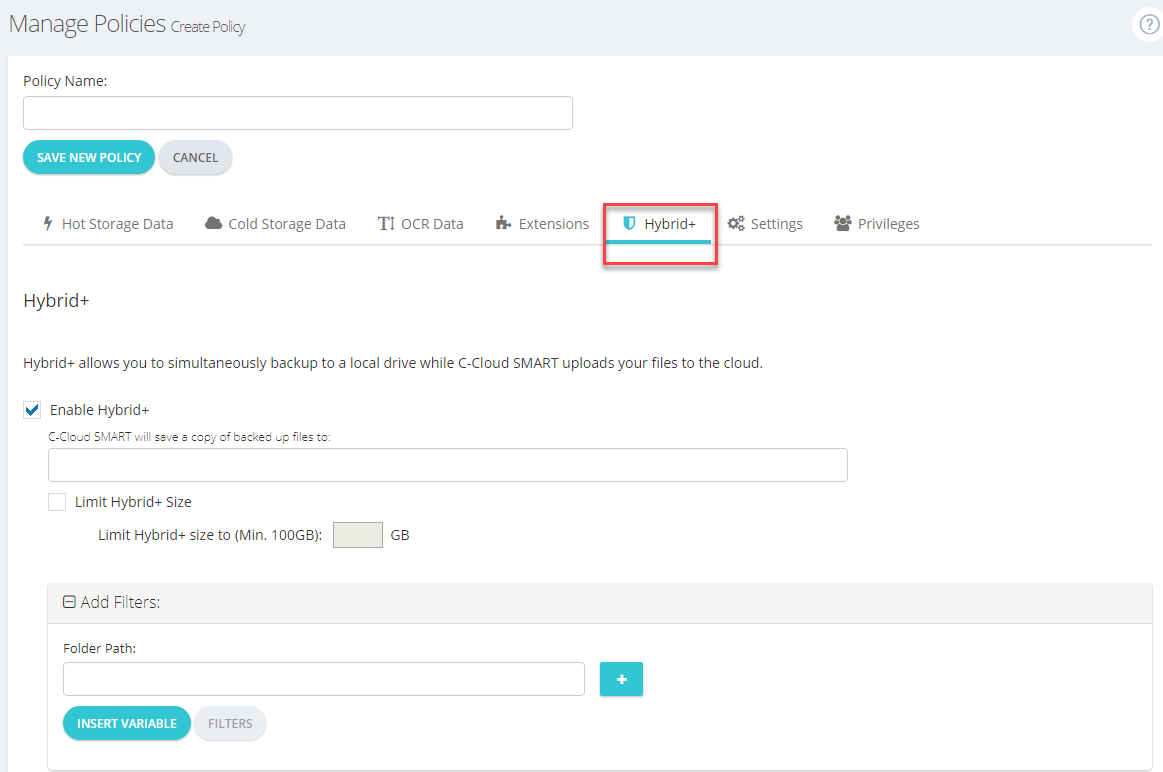
5. Settings: From this tab, you can:
- Set the General Settings for the backup, which are:
- Include/exclude hidden files.
- Enable/disable backup markers.
- Enable/disable Windows context menu integration.
- Enable/disable Battery Mode.
- Enable/disable Presentation Mode.
- Start/do not start C-Cloud when the computer starts.
- Enable/disable RAW images preview.
- Generate/do not generate JPG images preview.
- Enable/disable multithreaded upload.
- Specify the connection type you need C-Cloud to work on it. (LAN/WiFi/3G)
- Set the Security Settings for the backup, which are:
- Allow/prevent the user(s) to set encryption password for their backup.
- Enable/disable the SSL.
- Set the Backup Schedule, to specify when to run the backup of C-Cloud, and to change the frequency at which the Block Level files will be backed up.
- Enable/disable the Bandwidth Throttling, and schedule it if needed.
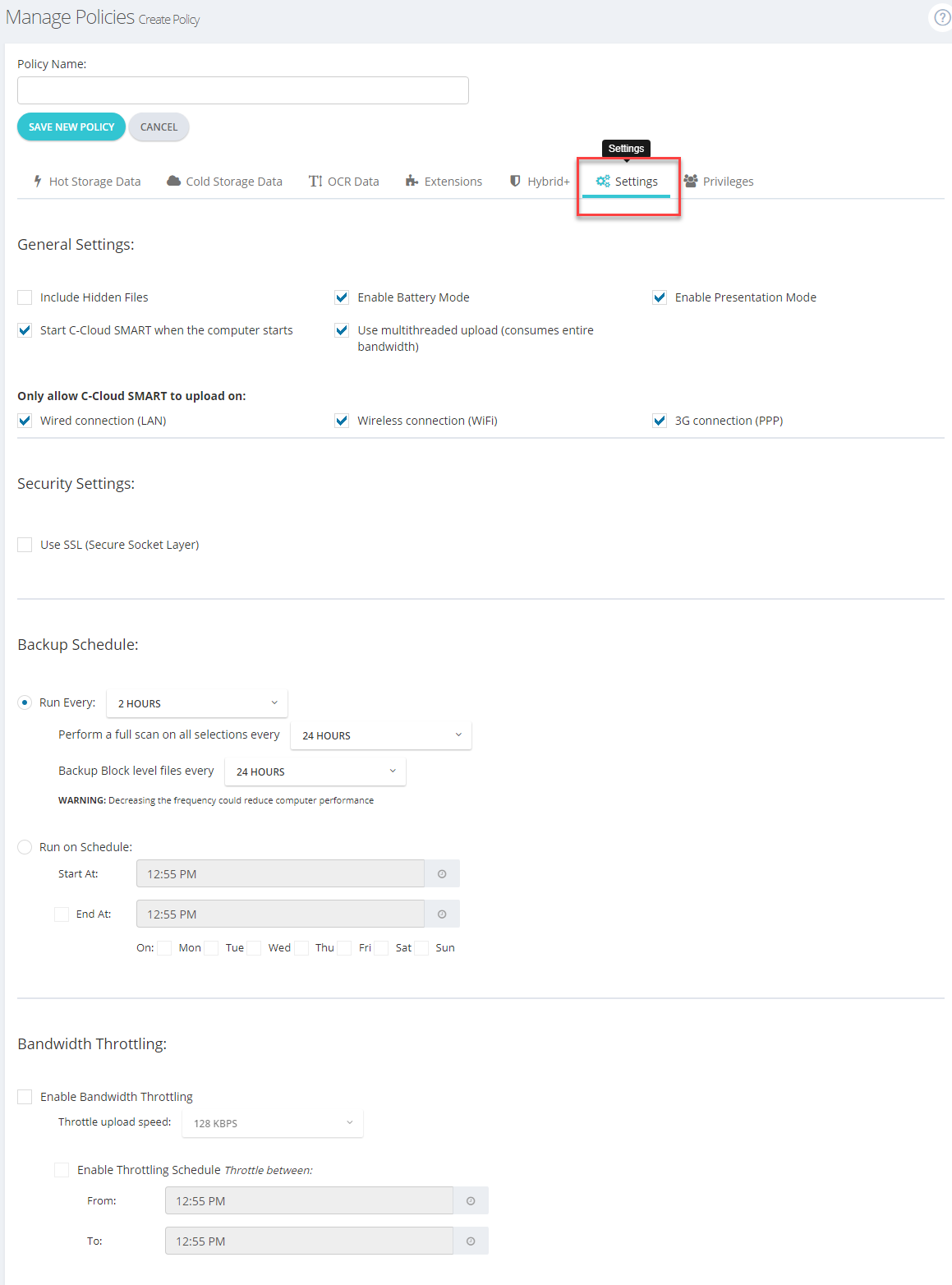
6. Privileges: From this tab, you can:
- Set the Web Privileges, which are:
- Enable delete data: Using this option, you can specify whether you want to allow the user(s) to delete any of their backed up files (from their online accounts) or not.
- Enable Sharing: Using this option, you can specify whether you want to allow the user(s) to share any of their backed up files or not.
- Allow the ability to edit sign in email: Using this option, you can specify whether you want to allow the user(s) to edit their account’s emails or not.
- Allow the ability to change password: Using this option, you can specify whether you want to allow the user(s) to be able to reset their passwords by themselves or not.
- Allow the ability to edit username: Using this option, you can specify whether you want to allow the user(s) to be able to edit their usernames or not.
- Set the Client Privileges, which are:
- Add client passcode: Using this option, you can set a passcode that the user will need to enter whenever he/she tries to open C-Cloud software (client) which is installed on his machine.
- Customize C-Cloud Privileges:
- Enable Run Now
- Enable Pause/Resume
- Allow the ability to exit C-Cloud
- Enable Sharing
- Enable removing file/folder
- Enable adding file/folder from context menu and Enable Uninstalling C-Cloud.
